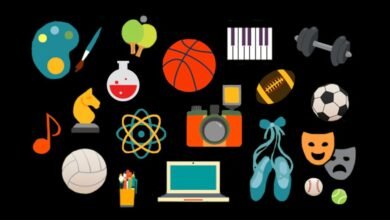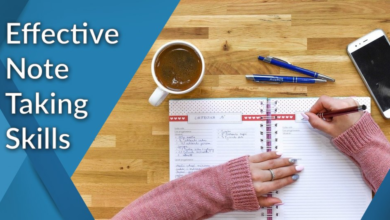How to Study Smarter, Not Harder: Tips for Efficient Learning
Master the art of learning with Study Smarter techniques for 2024. Achieve your goals efficiently with practical, proven strategies.

In the fast-paced world of academics, mastering how to Study Smarter has become more important than ever. Gone are the days when hours of unstructured effort yielded results. Today, students and professionals alike are seeking methods that maximize efficiency while minimizing stress. By adopting the right strategies, learning becomes not just faster but also more meaningful.
The concept of study smarter involves focusing on techniques that align with individual learning styles, cognitive science, and time management principles. This guide will take you through a comprehensive exploration of strategies that will transform your approach to learning in 2024, ensuring you make the most of your time and effort.
Understanding the Concept of Study Smarter
Study smarter involves using specific techniques and tools that improve how well a person understands, remembers, and uses information. It emphasizes the importance of focusing on the quality of studying rather than the sheer amount of time spent on it. This means that instead of just trying to read more pages or memorize facts without deeper understanding, a smart study approach encourages methods that help students truly grasp the material. By using strategies such as active learning, summarizing information in one’s own words, and testing oneself on the content, learners can strengthen their ability to remember what they have studied and effectively apply that knowledge in real-life situations. Ultimately, the goal is to make studying a more productive and meaningful process that leads to better outcomes in both academic and practical scenarios.
The Science Behind Efficient Learning
Efficient learning is strongly connected to how our brains work. The field of neuroscience studies how we learn and remember things. Researchers have found that certain techniques can significantly improve our ability to retain information over time. Two of these methods are spaced repetition and active recall. Spaced repetition involves reviewing information at increasing intervals, which helps our brain strengthen memory connections. Instead of cramming all at once, revisiting the material after some time allows us to better remember it in the long run. Active recall, on the other hand, is the practice of actively trying to remember information without looking at the answers. This could mean testing yourself on what you’ve learned or trying to explain it to someone else. Both techniques have been shown to not only help with memorization but also to make learning more effective, ultimately leading to stronger retention of knowledge in long-term memory.
Why Time Management Is Crucial in Study Smarter
Time management plays a crucial role in the process of studying effectively. It serves as a foundational element that allows students to learn more efficiently and with greater ease. By structuring and organizing your daily schedule in a thoughtful way, you create a clear path for yourself to follow. This organization not only helps you see what tasks need to be completed but also enables you to dedicate specific amounts of time to each of those tasks. As a result, you can engage with your work without experiencing the stress and anxiety that often come from feeling overwhelmed. With good time management, you can balance your study sessions, assignments, and even leisure activities, leading to a more relaxed and productive approach to learning. By prioritizing your tasks and setting aside appropriate time slots for each one, you can make the most of your study time, ultimately enhancing your understanding and retention of the material..
Active Recall
Active recall is a learning method that focuses on testing yourself about the material you need to understand instead of simply rereading it over and over. When you actively try to remember information, you engage your brain in a way that makes the details stick better. This practice helps to strengthen your memory and enables you to grasp the subject more thoroughly. Instead of just looking at notes or textbooks repeatedly, you ask yourself questions about what you’ve learned. This way, you are not just passively absorbing information; you are actively working with it, which leads to a deeper level of understanding. As a result, using active recall can greatly enhance how well you remember and comprehend the topics you are studying.
The Role of Spaced Repetition in Learning
Spaced repetition is an effective learning technique that involves reviewing information at gradually increasing time intervals. This method is designed to help your brain retain knowledge more effectively over time. Instead of cramming or trying to memorize everything at once, spaced repetition allows you to revisit the material after certain periods. For example, you might review something a day later, then a week later, and then two weeks after that. By spacing out your study sessions, you give your brain the chance to strengthen the connections related to that information. This ensures that the material you are trying to learn remains clear and accessible in your memory, making it easier to recall when needed.
Adapting to Your Learning Style
Each person has their own unique way of learning new information. This diversity in learning styles means that not everyone understands or remembers things in the same way. Some individuals are visual learners, who grasp concepts better when they see pictures, diagrams, or videos. Others may find they learn best through listening, making them auditory learners who benefit from lectures, discussions, or audio recordings. Additionally, there are kinesthetic learners, who retain information more effectively when they engage in hands-on activities or movement.
The Importance of Setting Clear Goals
Before starting each study session, it is crucial to clearly define what you wish to achieve. This practice helps maintain your focus during your time of study and ensures that your efforts are directly connected to your larger academic goals. When you set specific goals for each session, you create a roadmap that guides your learning. This clarity allows you to stay on track and prevents distractions from pulling you away from your main objectives. By knowing exactly what you want to accomplish, you can measure your progress and feel a sense of achievement as you complete each task. This focused approach not only enhances your understanding of the material but also contributes to your overall success in your academic journey.
Eliminating Distractions for Better Focus
Creating a distraction-free environment is crucial for effective studying. When students eliminate interruptions and establish a space that is calm and organized, they can focus better on their work. A tidy desk, quiet surroundings, and minimal electronic distractions can significantly enhance concentration and retention of information. One helpful technique to support this focus is the Pomodoro method, which involves studying in short, concentrated bursts followed by brief breaks. This approach allows individuals to maintain their attention over time and helps prevent burnout, making studying more productive. By combining a peaceful setting with effective time management strategies like the Pomodoro method, learners can study smarter and achieve better results in their academic pursuits.
Using Technology to Study Smarter
Digital tools like flashcard apps, mind-mapping software, and time-tracking apps can streamline your study process.
The Value of Mind Maps in Efficient Learning
Mind maps visually organize information, making it easier to understand complex topics and draw connections between ideas.
Breaking Down Complex Topics into Smaller Segments
Chunking material into manageable sections prevents cognitive overload and makes studying less intimidating.
The Significance of Regular Review Sessions
Consistent review reinforces learning. Revisiting material periodically ensures that knowledge is retained over the long term.
How to Create a Study Plan That Works
A personalized study plan is a roadmap to success. It aligns your academic goals with actionable steps.
The Role of Healthy Habits in Study Smarter
Good nutrition, regular exercise, and sufficient sleep play essential roles in improving cognitive function and enhancing productivity. When a person maintains a balanced diet, the body receives vital nutrients that support brain health. These nutrients include vitamins, minerals, and antioxidants, which help to improve memory, focus, and overall mental clarity. Foods rich in omega-3 fatty acids, such as fish and nuts, can boost brain performance and are vital for keeping cognitive abilities sharp.
In addition to a healthy diet, engaging in regular physical activity is crucial. Exercise increases blood flow to the brain, which can lead to better attention and memory. Furthermore, being active helps to reduce stress and anxiety, allowing individuals to think more clearly and work more effectively. Activities such as walking, jogging, and even dancing can contribute to a stronger mind and body connection.
Adequate sleep is another key factor that significantly impacts both cognitive function and productivity. Sleep is the time when the body and brain repair themselves and process information from the day. Without enough rest, cognitive processes can slow down, making it difficult to concentrate, make decisions, and solve problems. Quality sleep enhances creativity and allows for better performance in tasks throughout the day.
Therefore, prioritizing good nutrition, consistent exercise, and quality sleep creates a solid foundation for improved cognitive abilities and heightened productivity. Individuals who focus on these three areas are more likely to perform at their best, leading to better outcomes in both personal and professional settings.
Collaborating with Study Groups for Better Understanding
Group discussions provide diverse perspectives, enabling a deeper understanding of challenging subjects.
The Power of Teaching as a Learning Strategy
Explaining concepts to others not only reinforces your knowledge but also highlights areas that need more attention.
Leveraging the Feynman Technique
The Feynman Technique involves simplifying concepts to teach them to others, a method that fosters deep comprehension.
Balancing Study and Rest for Optimal Productivity
Taking breaks and allowing yourself time to recharge prevents burnout and enhances focus during study sessions.
Tracking Your Progress for Continuous Improvement
Regularly evaluating your performance ensures that you stay on track and make necessary adjustments to your study routine.
Read More: How to Study Smarter, Not Harder
Conclusion
Mastering how to Study Smarter rather than harder is not just a strategy but a transformative approach to education. By understanding your learning style, leveraging technology, and applying scientifically-backed techniques, you can significantly enhance your academic performance without unnecessary stress. The shift from sheer effort to effective strategies allows you to enjoy the learning process and achieve long-term success.
As you implement these methods, remember that consistency and adaptability are key. Education is not a one-size-fits-all journey. Your commitment to refining your study practices will not only make you able to study smarter but also inspire those around you.
FAQs
1. What does it mean to study smarter, not harder?
Study smarter involves using efficient methods like active recall and time management to optimize learning outcomes with minimal stress.
2. How can I identify my learning style?
Experiment with visual, auditory, and kinesthetic methods to determine which approach helps you retain and understand information best.
3. Are there apps to help me study smarter?
Yes, apps like Anki for flashcards, Notion for organization, and Forest for focus are excellent for enhancing study productivity.
4. What is the Feynman Technique?
The Feynman Technique involves breaking down concepts into simple terms to teach them to others, deepening understanding and retention.
5. How often should I review study material?
Use spaced repetition to review material at regular intervals, ensuring it stays fresh in your memory without overwhelming yourself.







